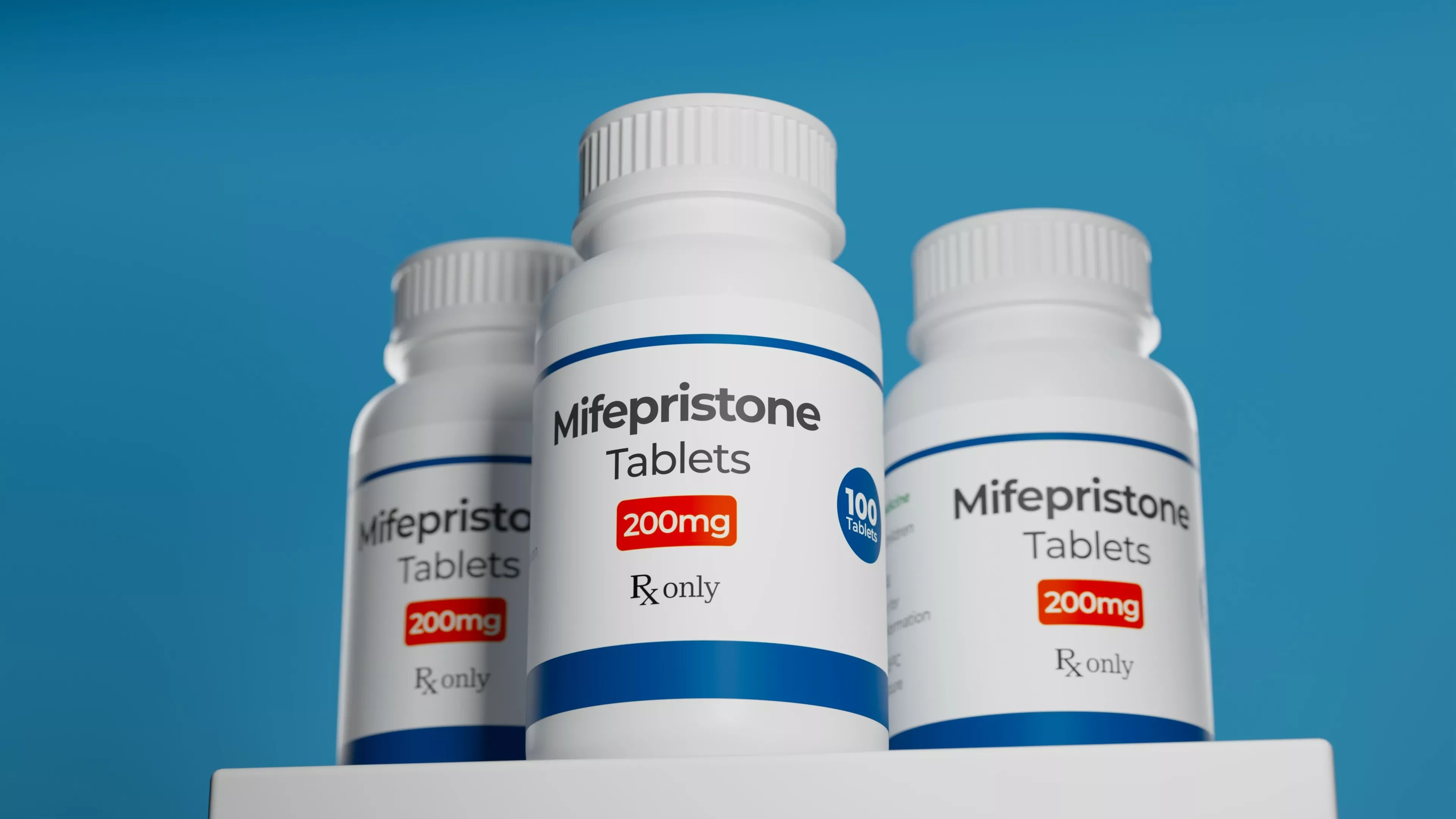
Adobe Stock

Audio By Carbonatix
Secretary of Health Robert F. Kennedy Jr. has ordered the Federal Drug Administration (FDA) to review the widely used abortion-inducing drug, mifepristone. The move, inspired by an allegedly unsound analysis cited by anti-abortion advocates, echoes a similar disapproval from Texas politicians who were trying to have the drug re-scheduled as a controlled substance this legislative session.
Mifepristone is the first pill in a two-step medical abortion that terminates an early-stage pregnancy by blocking progesterone and causing the uterus to shed its lining. The drug was originally approved by the FDA in 2000 and was used in nearly two-thirds of all abortion procedures in the United States in 2023. But now an unverified report is questioning the pill’s low-risk reputation, and Kennedy is increasing speculation around the pharmaceutical’s side effects.
“It’s alarming and clearly it indicates that at very least the label should be changed,” Kennedy said while speaking about the analysis and the ordered review at a Senate hearing.
The analysis was published by the Ethics and Public Policy Center (EPPC), a rightwing thinktank “that applies moral and ethical principles, particularly those rooted in Judeo-Christian tradition, to public policy debates.” One of the researchers responsible for the study is Jamie Ryan T. Anderson, president of the EPPC and a teaching fellow at the University of Dallas in Irving. Anderson has a college degree in music and political philosophy.
The analysis has attracted suspicions of doubt surrounding its legitimacy, and according to The Guardian, has not been peer-reviewed nor published in a medical journal.
The study, which claims to be the largest of its kind dedicated to analyzing the dangers of mifepristone, looked at insurance claims involving a prescription for the pill. They study reports 10.93% of women who ingested the pill experience sepsis, infection, hemorrhaging, or another serious adverse event within 45 days, but pundits say the study has poor qualifications for “adverse events”. Of the 94,605 patients the study says were seriously harmed by abortion pills, about half had visited an emergency room. The study does not include how many patients were actually hospitalized and treated following the visit to the ER.
🚨 Over one in ten patients experience at least one serious adverse event after taking a the chemical abortion pill mifepristone. Read more to learn about the lies the Biden admin told women about this dangerous drug ⬇ï¸https://t.co/3T3sin7pvm
— Sen. James Lankford (@SenatorLankford) April 28, 2025
But still, the skewed data led the analysts to conclude that the pill should be reassessed by the FDA, relabeled, and even removed from pharmacies entirely.
“The FDA should further investigate the harm this drug causes to women and, based on objective safety criteria, reconsider its approval altogether,” reads the study. “Women deserve better than the abortion pill.”
War On Abortion
Attempts to hinder the use of mifepristone, and the other pill used in a medical abortion, misoprostol, in Texas stalled at the House, failing to pass committee. But the bill created a stir among experts who questioned how far Republicans are willing to go in their fight to completely eradicate all avenues to abortion care. As it stands, a medical abortion within the first seven weeks of pregnancy is the only available pregnancy termination treatment option in Texas.
The bill, which would keep the two pills, frequently stocked on obstetrics carts, to be moved behind locked pharmacy doors, the treatment usually given to highly addictive medications like morphine. Doctors expressed concerns about the multi-use purposes of the two pills, particularly in emergency situations.
“More critically, by scheduling mifepristone and misoprostol as controlled substances, legislators are creating barriers for clinicians in emergency situations in which a patient’s life or health could be at risk,” said a statement about the bill from the American College of Obstetrics and Gynecologists.
Though the bill failed, there are still other abortion-related bills moving through the session. Since the 2022 passage of the Heartbeat Act, the strongest crackdown on abortion access in the country since Roe v. Wade, Texas lawmakers have zeroed in on abortion-inducing drugs, exploring every option to fully remove access to the pills.
A variety of bills aiming to further dampen abortion access were filed this session, some propose six-figure fees for abortion pill manufacturers and providers, while others clarify when doctors can perform abortions as a life-saving measure. But abortion restriction is nothing new to the Texas Legislature, and extreme bills, even some threatening to charge women who receive the procedure with a capital offense, have come and gone. But such attacks on abortion-inducing drugs at the federal level mark a significant change in presidential administration attitudes towards reproductive rights.
The president has shifted his view on abortion, growing in opposition over the years. But according to Kennedy, the review of mifepristone will come from within the White House, leaving the determination up to the current administration.
“Even more alarming is Secretary Kennedy’s admission that the FDA’s decision on medication abortion will come not from scientists or doctors but ‘from the White House.’ We should all be scared if our access to safe, FDA-approved medications turns on President Trump’s gut instinct rather than credible scientific evidence,” said Julia Kaye, senior staff attorney for the Reproductive Freedom Project at the American Civil Liberties Union in a statement. “This new FDA review has nothing to do with science and everything to do with teeing up nationwide restrictions on abortion. If the FDA moves forward with this politically motivated review, that is a dangerous sign that the president is going back on his promises to voters not to restrict abortion access even further.”